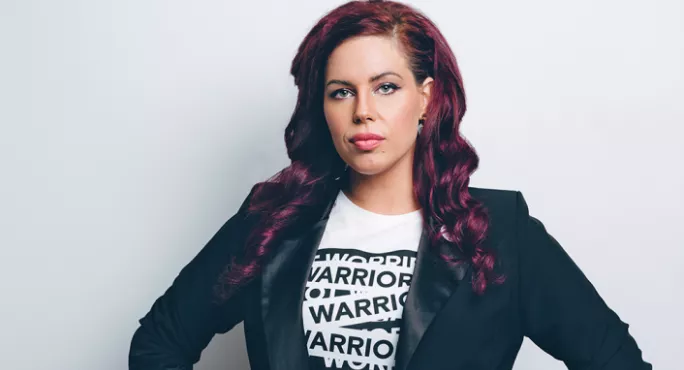- Home
- ‘Pupils need role models who actually champion diversity...’
‘Pupils need role models who actually champion diversity...’

“You can’t be what you can’t see.”
So says the oft-quoted idiom that is used to remind us why diversity is so important. Children - regardless of their gender, race, level of disability, colour or religion - need to know there are people like them in all areas of public life, if they are to understand the true scale of possibility open to them.
But lately, I have been thinking about what “diversity” really means and whether it’s enough simply to “see” people who resemble you in the wallpaper of your world. I first began contemplating this issue last year when a woman of colour, Munroe Bergdorf, was sacked as a model for L’Oréal after the Daily Mail reported that she had said “all white people are racist” in a Facebook post.
A cursory glance at the original post shows Munroe making a nuanced point (nuance and tabloid journalism have never made good bedfellows). What she in fact said was that all white people benefit from structural racism and that if you’re not part of the solution, you are part of the problem. It’s nothing that countless others, including Martin Luther King, haven’t said before her. For L’Oréal to unceremoniously dump Bergdorf, who also happens to be transgender, for having “caused offence” showed that what they wanted for their campaign was diversity of bodies, but not diversity of thought. They wanted black faces, but not black voices.
The issue was bought freshly into my mind this week, following two high-profile news stories. The first was Dancing Queen Theresa May’s speech at the Tory party conference. Speaking about the importance of diversity with reference to the Conservative Party, she said:
“…To dream, to strive, to achieve a better life. To know that if your dad arrived on a plane from Pakistan, you can become the home secretary. That if you spent time in care, you can be in the cabinet. That if your grandparents came to our shores as part of the windrush generation, you could be the next mayor of London. That if you are pregnant with your first child and engaged to your girlfriend, you could be the next first minister of Scotland.”
This from the woman who, just two short years ago, oversaw the deployment of vans to economically deprived areas with the slogan “go home” emblazoned on them; and who leads a government that has made almost all marginalised groups, from those who live with mental illnesses, young people, people with disabilities to people who rely on benefits, economically and structurally worse off. It is one thing to have a range of colours, economic backgrounds and sexualities in your party; quite another if your policies render them unable to protect the rights and look after the interests of people like them.
‘Calm down’
Then, on Thursday evening, I watched one of the weirdest episodes of Question Time I’ve ever seen. George Mpanga, a young black man better known as George the Poet, made his debut on a panel. He argued that xenophobic rhetoric around immigration had been a big driver in the leave campaign, which I don’t think any reasonable person could possibly contest. A white audience member challenged George, claiming he should “look at the statistics” and that “the UK is one of the least racist societies, actually, across Europe”, to which George replied “Oh phew! Thank you so much. So I didn’t get stopped by police while sitting outside my mum’s house earlier this year.”
A woman wearing a hijab responded to her fellow audience member by saying “It’s funny that you’re a white man saying that”, at which point she was promptly told to “calm down” by a third audience member who was, you guessed it, white.
What shocked me was not the programme itself, but the media and Twitter response. George and his “Muslim” supporter were furiously accused of “racism” for “telling a white man he wasn’t entitled to his opinion”, while the idea that Britain isn’t racist was repeated and celebrated.
This represented an unequivocal silencing of the voices of people of colour (who are, after all, best placed to assess how racist Britain is) because they spoke uncomfortable truths. Diversity means little if it doesn’t disrupt the prevailing narrative - It is simply tokenism.
So, perhaps we should be saying “children can’t be what they can’t hear”. Admittedly, it doesn’t rhyme, but it benefits from being true.
Natasha Devon MBE is the former government mental health champion. She is a writer and campaigner and typically visits three schools per week across the UK. She tweets @_natashadevon
Keep reading for just £1 per month
You've reached your limit of free articles this month. Subscribe for £1 per month for three months and get:
- Unlimited access to all Tes magazine content
- Exclusive subscriber-only stories
- Award-winning email newsletters


